AAAS names fellows
Nine members of the American Society for Biochemistry and Molecular Biology are among 505 scientists named 2022 fellows of the American Association for the Advancement of Science. ASBMB members who are AAAS fellows in chemistry are Vahe Bandarian, Alexander Drohat, Elizabeth Komives, Audrey Lamb and Juliette Lecomte. Fellows in medical sciences are Gerard Blobe, Thirumala-Devi Kannegante and Ghislain Opdenakker. Bonnie Firestein is a fellow in neuroscience.
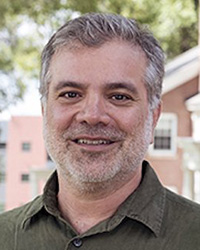
Vahe Bandarian is a professor of chemistry and associate dean for student affairs at the University of Utah, where he has been reconstructing the biosynthetic pathways for various natural products. His lab explores the molecular basis for radical-mediated modifications that lead to complex peptide and nucleic acid based molecules. He is a 2022 ASBMB fellow and serves as chair of the ASBMB Meetings Committee and on the editorial board of the Journal of Biological Chemistry.
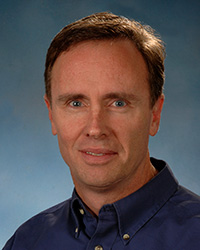
Alexander Drohat is a professor of biochemistry and molecular biology at the University of Maryland School of Medicine, where he studies the structure and mechanism of DNA base excision repair enzymes. His lab investigates how DNA glycosylases recognize and remove mutagenic DNA lesions, to guard against cancer and other diseases, and how they affect epigenetic regulation by mediating active DNA demethylation.
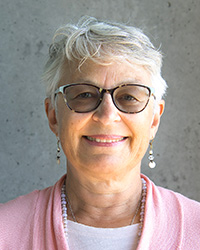
Elizabeth Komives, a distinguished professor of chemistry and biochemistry at the University of California, San Diego, studies the biophysics of protein–protein recognition. Komives’ team studies the transcription factor nuclear factor kappa B’s interactions with DNA and coactivators. She has contributed to a deeper understanding of the dynamics of serine proteases and recently has focused on the Cullin 5 family of E3 ubiquitin ligases, which use combinatorial protein-protein interactions to mediate degradation of a large number of cellular proteins.
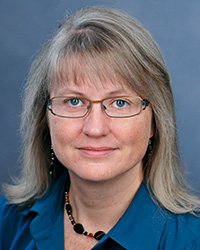
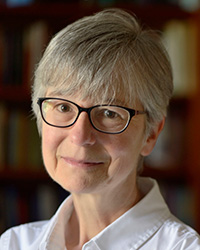
Juliette Lecomte, a professor of biophysics at Johns Hopkins University, probes the structure, function and evolution of the hemoglobin family of proteins. Of particular interest are thermodynamic and dynamic aspects of protein-cofactor interactions. Her team taps X-ray crystallography, nuclear magnetic resonance spectroscopy and optical spectroscopy to achieve their goals.
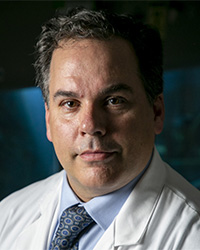
Gerard Blobe is a professor of medicine, pharmacology and cancer biology at Duke University. He studies how transforming growth factor-beta, or TGF-β, signal transduction pathway affects cancer. His research has established novel paradigms for TGF-b co-receptor function in regulating the trafficking and signaling of associated receptors, as well as the role of these TGF-b co-receptors in cancer biology.
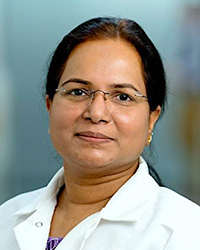
Thirumala-Devi Kanneganti is a member, vice chair and endowed chair of immunology at St. Jude Children’s Research Hospital. She provided the first genetic evidence for NLRP3 inflammasome activation in response to microbial components and elucidated its roles in diseases, contributing to the inception and expansion of the inflammasome field. Her lab also discovered Z-DNA-binding protein 1 as an innate immune sensor that activates PANoptosis, a form of inflammatory cell death implicated across the disease spectrum, pioneering a new research area.
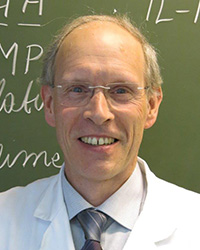
Ghislain Opdenakker is an emeritus professor at and former chairman of the Rega Institute for Medical Research at Belgium’s University of Leuven. He introduced the concept how extracellular proteolysis and other posttranslational modifications lead to autoantigen repertoires in susceptible hosts and thereby helped to identify preventive and better treatments for autoimmune diseases.
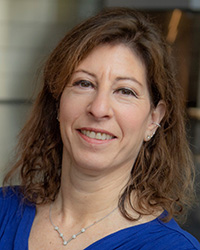
Bonnie Firestein, a professor of cell biology and neuroscience at Rutgers University, studies how guanine metabolism impacts neuron development and recovery from injury. Her lab identified the postsynaptic density protein-95 interactor cypin as a regulator of neuronal development that influences the cytoskeleton and its function. She is a member of the Journal of Biological Chemistry editorial board.
Enjoy reading ASBMB Today?
Become a member to receive the print edition four times a year and the digital edition monthly.
Learn moreGet the latest from ASBMB Today
Enter your email address, and we’ll send you a weekly email with recent articles, interviews and more.
Latest in People
People highlights or most popular articles

Simcox wins SACNAS mentorship award
She was recognized for her sustained excellence in mentorship and was honored at SACNAS’ 2025 National Conference.

From humble beginnings to unlocking lysosomal secrets
Monther Abu–Remaileh will receive the ASBMB’s 2026 Walter A. Shaw Young Investigator Award in Lipid Research at the ASBMB Annual Meeting, March 7-10 in Washington, D.C.

Chemistry meets biology to thwart parasites
Margaret Phillips will receive the Alice and C. C. Wang Award in Molecular Parasitology at the ASBMB Annual Meeting, March 7-10 in Washington, D.C.

ASBMB announces 2026 JBC/Tabor awardees
The seven awardees are first authors of outstanding papers published in 2025 in the Journal of Biological Chemistry.

Decoding how bacteria flip host’s molecular switches
Kim Orth will receive the Earl and Thressa Stadtman Distinguished Scientists Award at the ASBMB Annual Meeting, March 7–10, just outside of Washington, D.C.

Thiam elected to EMBO
He was recognized during the EMBO Members’ Meeting in Heidelberg, Germany, in October.
